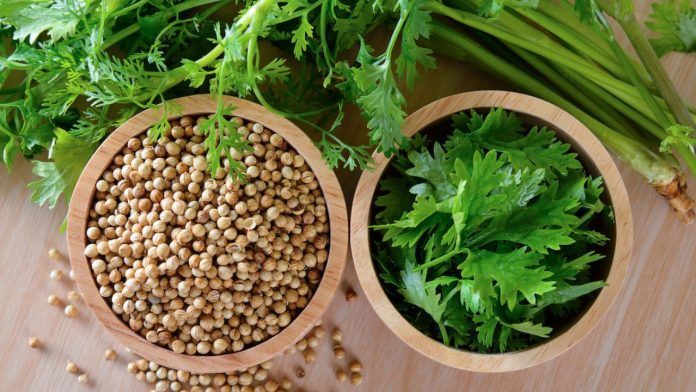Chronic disease pandemics are likely to be the next big thing. As the number of cases of heart attacks, diabetes, and hypertension rises alarmingly, it’s critical to focus on potential causes or contributing factors. Many of the items we see in stores, malls, and shopping centers, as well as street food like samosas, kachori, pizza, burgers, chips, and cookies, include bad cholesterol, or LDL. One of the main causes of the current rise in heart attacks, strokes, and other complicated health problems is poor eating.
Certain natural herbs and spices can be added to food to help control cholesterol levels, yet if one’s bad cholesterol levels are high, one should speak with a health professional.
Coriander is a spice and a herb. In North America, its leaves are referred to as cilantro, and in Asian cuisines, they are called “Chinese parsley.” As a spice, the seeds are used. It is not possible to substitute the taste of the leaves for that of the seeds.
A natural chemical powerhouse, coriander can efficiently lower high cholesterol. Its high antioxidant and dietary fiber content is essential for lowering LDL, or “bad,” cholesterol levels. Phytosterols are plant chemicals present in coriander that have been shown to prevent the intestinal absorption of cholesterol. By lowering blood levels of LDL cholesterol, this activity lowers the risk of atherosclerosis and heart disease.
One diuretic herb is coriander. Research has also demonstrated that it can aid in lowering bad cholesterol (LDL), which lowers the risk of atherosclerosis and prevents coronary heart disease.

 हिंदी
हिंदी






